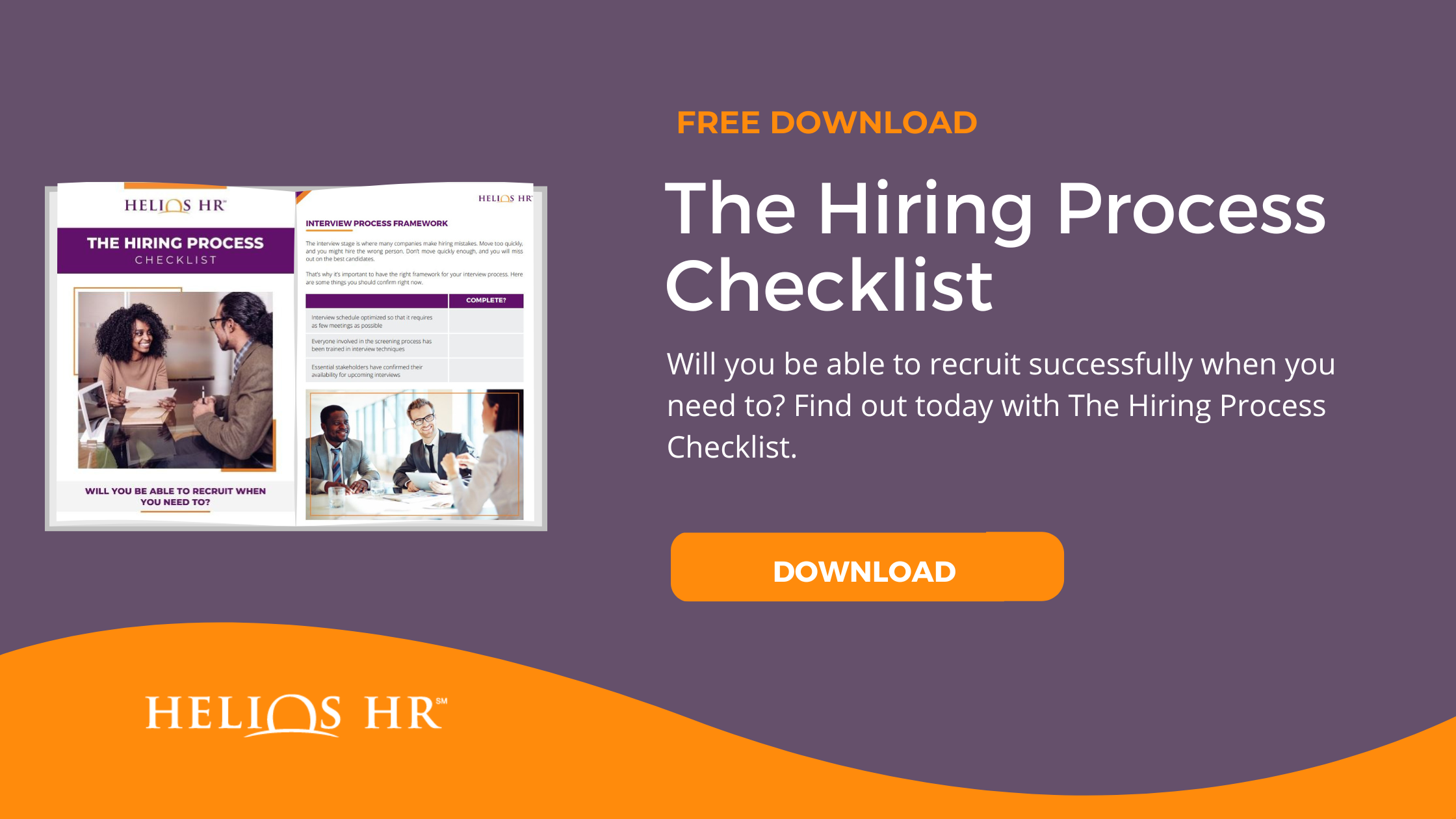By: Samantha Allison on March 15th, 2021
What is the Difference Between Staffing Vs Recruiting Services?
Is your business struggling with hiring needs? Are you trying to determine which path to take to help propel the company forward and get the right talent on your team? All of the industry buzzwords can be quite confusing when looking for potential third-party recruiting services.
Figuring out the best solution to hiring for your business can be a challenge, but the best place to start is understanding the differences between talent acquisition, recruiting, staffing and sourcing. Knowing in detail, what each service is and how they work within the business, will ultimately help you make the best choice for your hiring needs.
Staffing vs Recruitment: 4 options for your business
Below are the four most common services of recruiting that may help you better determine the best approach for your business today and in the future.
1. Talent Acquisition Consulting
The term I like to associate with talent acquisition services is strategy. Talent acquisition falls under the Human Resources (Talent Management) umbrella and involves all stages of the recruiting process.
This consulting approach to recruiting is based on long-term success and solutions, and it's not the right solution if your top priority is hiring someone immediately. Rather, the focus of talent acquisition consulting is to ensure your company is proactive and positioning itself for the future.
If you've been losing a lot of candidates or even current employees, your recruitment process seems broken, or your experiencing other hiring challenges, talent acquisition consulting might be the best option.
From employer branding, awareness, systems, and analytics, all the way down to onboarding. Talent acquisition consultants will help you to create a strategy to attract top talent to your organization and craft an intentional candidate experience.
Talent acquisition specialists will also look at the existing talent gaps against your business strategy, and work with your team on workforce planning and development.
Hiring now versus 20 years ago, has evolved into much more than just filling an open position. With the evolution of technology and new generations in the workforce, talent acquisition services will help you determine how to navigate these new spaces and challenges for future success.
2. Recruitment Process Outsourcing (RPO)
In its truest form, recruitment is referred to as, “the process of identifying, attracting, interviewing, selecting, hiring, and onboarding employees.” But what this definition is missing, is that it is not just about filling a vacancy (or, at least it isn’t in our world of recruiting).
Recruitment is about managing relationships. When you hire a dedicated recruiter, for instance, the focus is on understanding the needs and wants of both the hiring manager and the candidates, and to do that, a recruiter must build trust.
Knowing how to effectively build good, trusting relationships is what separates great recruiters from the norm. When you work with an outsourced recruiter dedicated to your business, they are invested in the process from the beginning all the way to end.
Your Recruitment Process Outsourcing (RPO) consultant will start with a strategy on how to best tackle the job vacancy, and from there, work to execute the plan. Whether they are hiring for 2 positions or 20, a big part of the strategy involves getting to know the ins and outs of the business, the industry, culture, and position requirements.
Once you have a recruiter who is an excellent listener, has the ability to think creatively, and can form strong connections with people, you should be able to hire great people in no time. During an RPO contract, businesses can expect to hire efficiently and effectively for a number of positions, by outsourcing the entire function to a third-party RPO firm.
3. Staffing agencies
Many people think of staffing and recruiting as one of the same. And as someone in the industry, let me tell you they are not. When I think of staffing agencies, I think about sales. Staffing agencies usually are a sales environment. Typically, it’s about filling your open job as quickly as they can.
Is it efficient? Yes, it can be in the short term and it works well for certain roles. The positive to working with a staffing agency is they tend to have a pipeline of candidates registered with their agency with a multitude of different backgrounds.
This in turn allows them to bring a new hire onboard quicker to fill the open position. Unlike in an RPO, a staffing firm will take on the risk vs. the employer because they will not have the overhead costs involved.The problems we’ve seen from our clients who have used staffing firms is that it may not always be the best fit for your business, culture or your client’s culture.
Generally speaking, staffing firms are not going to sit down and come up with a hiring strategy, look at your branding, manage the relationships between the hiring manager and the candidate, help you optimize the best applicant tracking systems (ATS) for your organization. While these processes can take a little bit more time upfront, they will save your business efficiencies and effectiveness in the long run.
Staffing agencies work best for organizations looking for a quick fix but more so, a temporary fix. Using this as a main source for hiring is like putting a band-aid on a problem.
4. Sourcing
Sourcing is about searching and identifying prospective qualified candidates. A sourcer is typically not involved in other stages of the recruiting process (i.e., screening, interviews, offers, etc.).
The role of the sourcer is to hunt, procure and build a pipeline of candidates for your organization to use in current and future openings. “A sourcer creates interest and drives talent to the organization.” It is a process that can take time depending on the level and number of positions open.
Generally, companies who are larger in scale tend to have sourcers as a part of their recruiting department or will outsource a sourcer to supplement their team. This is because large organizations have a multitude of roles open at once, and the recruiters alone, may not have the bandwidth to handle all phases of the recruiting life cycle. Sourcing is a great option for your company if you have recruiters in place, but they may not have the time to hunt for candidates.
As you are identifying which recruiting solution would work best for your business, make sure you think about these connections I’ve described above: 1) Talent acquisition + Strategy, 2) Recruitment + Relationships, 3) Staffing +Sales, and 4) Sourcing + Searching.
Recommended Reading: How Recruitment Process Outsourcing Can Support Your Hiring Strategy
Staffing vs Recruitment: Which is right for you?
As I shared, any of these options can be a great solution, but in the end, it is important to consider what your organization is experiencing today and what your needs are.
Some solutions are ideal for a quick fix while others are a long-term, conscious investment. Whichever path you take, it is essential to recognize that people are your company’s biggest asset and with great people, comes business success.
Ready to talk about building your dream team? Book a no-obligation consultation with a Helios HR consultant today.






